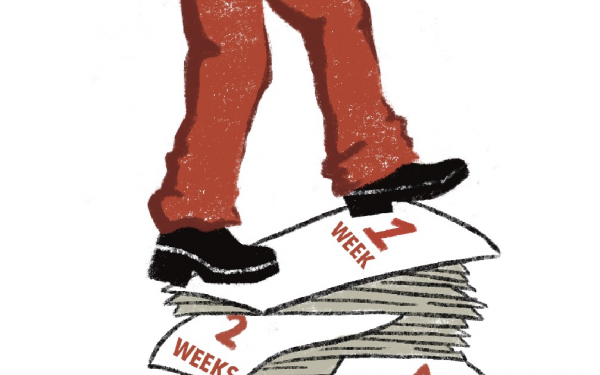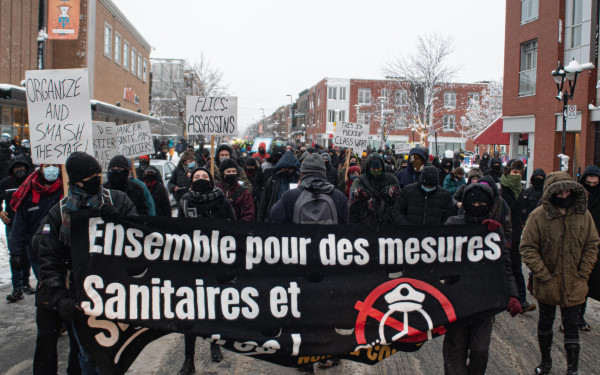New study permit cap divisive amongst international students
Canada will approve 35 per cent less study permits in 2024
On Jan. 22, Immigration, Refugees and Citizenship Canada (IRCC) announced a temporary two-year intake cap on study permit applications in Canada to “protect international students from bad actors and support sustainable population growth in Canada.”
The government will only approve approximately 360,000 study permits in 2024, a 35 per cent reduction from the 579,075 approved study permits in 2023. With this new number, the IRCC will hand out a chunk of the cap to each territory and province for them to delegate the permits accordingly. As for the number of study permits accepted in 2025, the government will reassess the potential number at the end of 2024.
Upon announcement of the new policy, IRCC minister Marc Miller justified that this cap is not against international students but to ensure the quality of education. According to the IRCC, these measures are enforced to correct the abuse of international students by institutions.
Kareem Rahaman, an international student from Trinidad and finance coordinator at the Concordia Student Union, agrees that international students are being taken advantage of, “and part of me wants to believe that the government is doing this to prevent [taking advantage of international students].” However, another part of Rahaman believes this is a “genius political move” in which the government is shifting the blame on international students instead of taking responsibility for poor health care and the housing crisis.
“When resources are limited, and you let this amount of people in, of course housing and cost of living are going to rise. I mean, that is just bound to happen,” said Mitchell Mak. Mak is an international student from Hong Kong studying a double major in psychology and linguistics at the University of Toronto (UofT). Mak’s family has been considering immigration for a while, as Mak moved to Canada in grade 12. “I don’t think there is anything wrong with a country trying to protect its own interest,” Mak said.
The IRCC will now require all study permit applications to be submitted with an attestation letter from the territory or province of the desired study. Territories and provinces have until March 31, 2024, to solidify a plan to provide student attestation letters.
The cap will not impact current permit holders or those pursuing elementary, secondary, master’s, or doctorate degrees.
The cap will not negatively affect Quebec, this new policy allows the province to—if it wishes—take in more international students. Although Quebec can potentially take in more international students over the next couple of years, the guarantee appears slim, given that international students who wish to study at English institutions in Quebec "will see their minimum tuition fees set at roughly $20,000" for the fall 2024 semester, in addition to an obligation to learn French. According to Concordia's website, the university will keep fees at the currently published tuition rates for international students for the 2024-2025 academic year.
The cap will, however, drastically affect Ontario and British Columbia, two provinces that harbour the top percentage of international students in Canada.
Last year, Ontario accepted 300,740 study permits, 51.9 per cent of the entire 2023 approved batch; that number is also 83.5 per cent of what the government will approve this year nationally. B.C took in the second most international students last year, approving 108,535 permits, 18.7 of the 2023 batch, and 30.1 per cent of the 2024 cap. These provinces will receive about half their usual number of international students this year.
For Sofia Solano, a second-year international student from Belize who studies commerce at UofT, Ontario offered a higher level of education that was not possible at home.
It is undeniable that Toronto is pricey for Solano, “I have a scholarship for $100,000, and it is barely making a dent,” she said. Yet Solano sees this high cost as a cost of a better life, “it does suck that we get charged a ridiculous amount more than domestic students. But again, I just view [studying abroad] as something that needs to be done,” she said.
This policy also came shortly after Miller announced an update to the financial requirement for those applying for a Canadian study permit. Applicants will now have to prove they have $20,635 in addition to their tuition and travel fees to be considered.
The cap also puzzles Solano as she begs the question: “If you can’t afford it, you wouldn’t be here. Right?” She believes the cap is not about saving students from exploitation but reducing the number of international students in Canada.
Still, Mak does not think Canada is obligated to carry the burden of “improving the quality of international students’ lives.”
“(Especially) not at the expense of worsening your own quality of life in your own country,” he said.
Solano has two sisters looking into post-secondary education in the U.S. and Canada and might be affected by this cap. “It’s sad because I feel like everyone kind of deserves a fair shot,” Solana said.
A previous version of this article stated that international student tuition will double for fall 2024. Concordia has announced that for the 2024-2025 academic year, tuition for international students will remain the same. The Link regrets this error.







